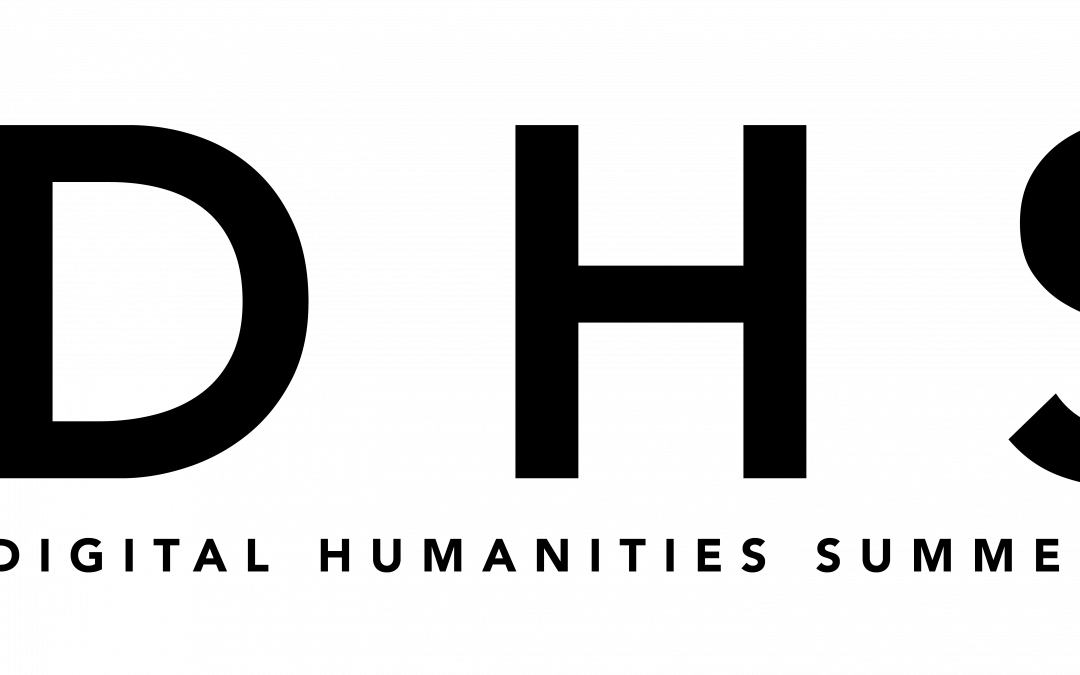By Maggie Sardino
Scrolling through the workshops on the 2022 DHSI website, I instantly felt in over my head. Words like “stylometry”, “tracery”, “retro machines”, and “semantics” made me feel like I was in high school math class again. And I’m a writing major.
I kept scrolling and scrolling and scrolling until I found an island in a sea of jargon. “Social Knowledge Creation/ Construction”. A wave of relief rolled over me. “I know this” I remember thinking. Phrases like “knowledge construction” and “interdisciplinary” were like music to my ears. I had my reservations about gamification, but I was convinced the course would be smooth sailing.
As an undergraduate student at Syracuse University (SU), I have been lucky enough to be involved in several projects with social knowledge creation at their core. These projects have been defined by their use of mixed mediums and interdisciplinary contexts extending beyond the SU campus. I thought the course would just be more of what I already know.
But I was wrong.
Reading the course material on Burke’s social history of knowledge, the scholarly publishing industry, Wikipedia/ Wikimedia, digital knowledge commons, gamification, and digital scholarship was surprising. There were certainly intersections with my previous work, but each topic cast social knowledge creation in a completely new light.
Understanding the academic publishing ecology and the oligarchic power the “big five” have over it was eye-opening. Learning about the outrageous profit margins in academic publishing (30%-40%), bundling practices and non-disclosure agreements placed social knowledge creation in an explicitly economic context. I had never considered how central libraries are to the promotion and legitimization of knowledge co-production, especially with researchers not embedded in the academy. If libraries are facing increasing constraints as a result of the policies of the big five publishers, how can we expect these institutions to invest the necessary resources to support and document social knowledge production?
Learning about the co-productive potential of Wikipedia was equally illuminating. I, like many, was taught from a very young age that Wikimedia was unreliable; that just anyone could edit it. The “verifiability, not truth” ethos of Wikipedia and the role of editors’ reputation in editing makes it a rigorous source of information. Gaining a greater understanding of the history, philosophy, editing process, and shortcomings of Wikipedia has enabled me to see the site as a fertile place of social knowledge construction. This greater understanding has also made me contemplate why Wikipedia is such a contested source: Why don’t we value its reliance on multiple perspectives more? What do we really mean when we say just anyone can edit it?
Our class meetings recontextualized co-production as well. In some moments, the impassioned group discussions were overwhelming. Conversations about the challenges of publication metrics and tenure and promotion policies to genuine social knowledge creation were daunting. Not because I didn’t understand what was being said, but precisely because I did. As someone who sees myself working in the future to make academic research more engaged with communities that exist beyond the ivory tower, the conversations in class forced me to reckon with just how complicated, and challenging changing the culture within academia is.
It’s an interconnected web of big publishing, library policies, the limitations of traditional academic journals, bibliometrics, tenure criteria, and “prestige”. Changing academia is about so much more than singular research projects; it’s about rethinking whether we want social knowledge creation to play a role in academia, what we really want from the scholarly publishing industry, and who we want universities to be for. These are intimidating questions.
And to avoid sounding cliche, I won’t say that the class was simultaneously comforting, but it was empowering. I am embarrassed to admit it, but I had absolutely no idea how deeply problematic academic publishing was before this course. But I also didn’t recognize Wikimedia as a powerful tool for social knowledge creation and a potential site for community-based research. And most critically, I didn’t know that so many professionals embedded in academia cared as deeply as I do about democratizing universities and addressing the injustices inflicted by academic research.
Gaining a fuller perspective of the obstacles to social knowledge creation within the academy, especially when it comes to knowledge co-production with individuals not embedded in academic culture, was invaluable for me. It has made me rethink my own research and see new opportunities for change.
I hope to return to DHSI next year, embrace the unknown, and find myself reckoning with different perspectives and empowering myself with new knowledge.


